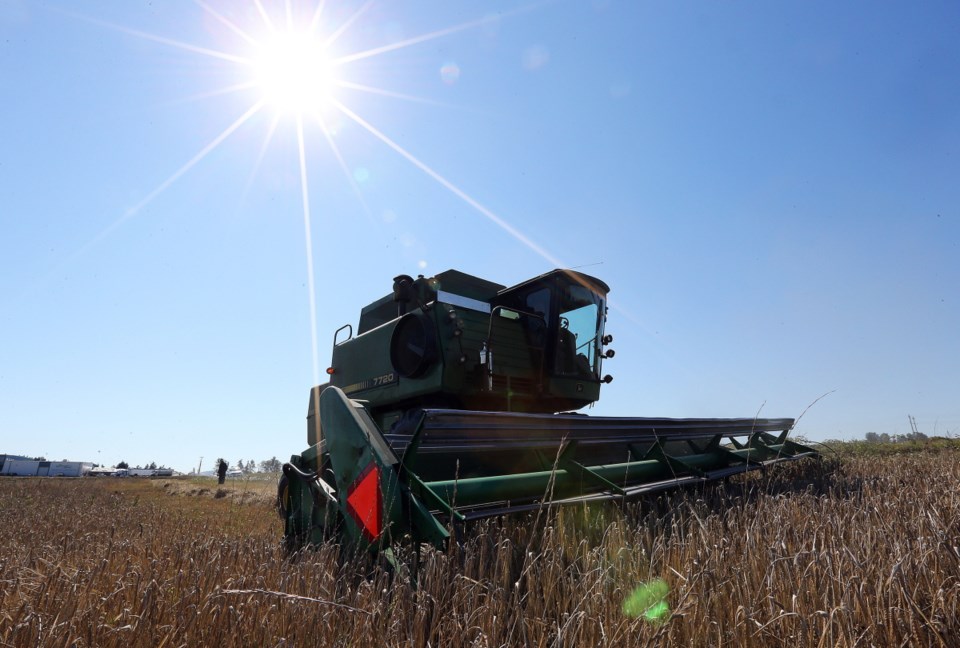 "Divide and conquer” is the oldest strategy in the book and it was used to good effect on the Agricultural Land Reserve.
"Divide and conquer” is the oldest strategy in the book and it was used to good effect on the Agricultural Land Reserve.
The striking thing about the ALR story after the B.C. Liberals radically restructured it was how generally insipid the public reaction was. There was ferocious opposition within the farmland preservation movement, which blitzed the government with objections. But that’s a relatively small interest group.
Some of the agriculture sectors came out against the changes, after some initial confusion about what they thought of it. The NDP mounted a sustained attack on the bill that ran right until a form of closure was invoked and debate was cut off to allow the legislative session to adjourn.
But there didn’t seem to be much take-up from the public. A rewrite of what some consider a sacred trust was accomplished without the major showdown that some expected. A few petitions were presented to the legislature against the ALR amendment, with a few thousand signatures. But so was one from the South Peace River, signed by 322 persons, in favour of the bill. There was one small protest on the front steps.
The dramatic changes to the ALR were tabled March 27 and arrived in a cloud of confusion. The bill had former agriculture minister Pat Pimm’s name on it, but it was introduced by Forests Minister Steve Thomson, after an explanatory news conference by Core Review Minister Bill Bennett. (Pimm is ill, and was subsequently replaced by Norm Letnick.)
The core review is a big efficiency drive aimed at eliminating waste. Bennett took that mandate and drove it right through some key principles of the ALR, which made for an awkward mix. Consultation on the changes was equally clumsy. It was fobbed off on a finance committee that had nothing to do with the ALR.
The thrust of the bill is to relax the stringent farmland-protection law by broadening accepted uses of ALR land. Liberals want those stringent 40-year-old standards lowered just enough to give farmland owners leeway to generate income from their land in other ways.
The motivations behind the change stem from a generation’s worth of mistrust of the Agricultural Land Commission. The inboxes of rural MLAs routinely fill up with complaints from landowners about the ALR. And Bennett has 12 frustrating years of experience fighting on their behalf.
“I’ve waited a long time for this,” he said at the briefing on how he was going to even up some scores.
For all the awkwardness around the introduction, the particular genius in the bill is the two zones. It leaves the ALR untouched in the three most developed regions: the Island, the Okanagan and the Lower Mainland. Politically, that damped down the three biggest sources of potential objections to the changes. No change? No problem.
It relaxes the standards in the rest of B.C. — the North and the Kootenay — where farming is much less valuable, and there is more pressure on ALR landowners to generate income from their land in ways that up to now would not have been approved.
The bill played the rural-urban split right down the middle, and it seems to have worked.
Letnick’s contribution was to make some amendments that at least left the impression the Liberals were trying to be reasonable.
The comparatively smooth passage is a far cry from what the New Democrats were expecting. At their convention last fall, members beat the war drums. They passed an emergency resolution to fight for the ALR, after Saanich South MLA Lana Popham warned the Liberals to “keep their grubby, greedy hands” off it.
They were counting on creating a big groundswell of public opposition and it didn’t seem to happen.
NDP Leader John Horgan said this week: “People are busy. It’s hockey season, even without the Canucks; people are focusing on other things.”
The NDP’s job is to try to generate enthusiasm about particular points of view, he said, but how many people show up at protests shouldn’t be the benchmark.
Overall, the bill proved the Liberals’ unofficial motto, as expressed colourfully by Brad Bennett at their Kelowna convention last week.
“We get sh-- done.”



